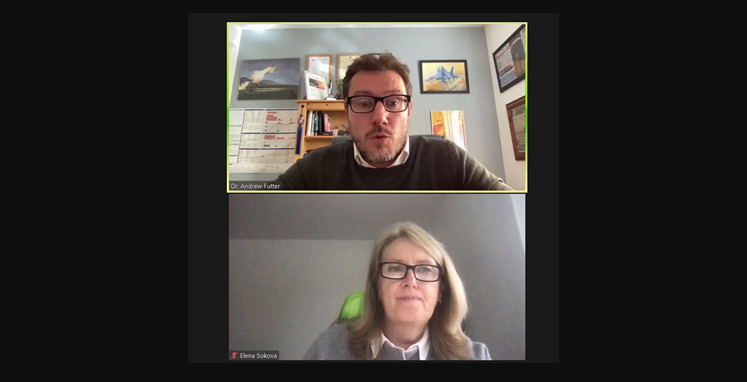
On 29 September 2021, the Vienna Center for Disarmament and Non-Proliferation (VCDNP) held a webinar with Dr. Andrew Futter to discuss the impact of emerging technologies on the stability of deterrence. This webinar inaugurated the Deterrence and Emerging Technologies (DET) Webinar Series organised with the support of the Austrian Ministry for European and International Affairs.
Dr. Futter is a Professor of International Politics at the University of Leicester, UK. He is currently working on a five-year project funded by the European Research Council to explore the technological and political drivers of a Third Nuclear Age. VCDNP Executive Director Elena K. Sokova moderated the event.
In her opening remarks, Ms. Sokova introduced the DET Series, which Dr. Futter opened, explaining that during the Cold War mutual deterrence underpinned the relationship between East and West and helped to avoid conflict and limit arms racing. A host of new technologies that recently emerged and some still not having reached maturity, are already affecting the stability of traditional deterrence relationships. The series will explore their impact on the stability of deterrence as well as the opportunities some new technologies can offer for arms control and confidence building measures.
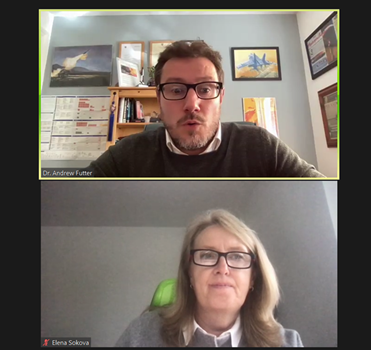
Dr. Futter began with a review of the evolution of nuclear deterrence through the Cold War and the post-Cold War period, explaining that the world is now entering a new phase which he called the Third Nuclear Age. The three phases differ by the focus, the concept of deterrence, and the role of nuclear weapons. The Third Nuclear Age stands apart from the previous periods in terms of greater uncertainty caused in part by new technologies and by the greater role of conventional assets which augment and perhaps even replace nuclear weapons. Emerging technologies may require a rethinking of the concepts of deterrence and strategic stability. He warned, however, that the role of new and emerging technologies is non-linear. Different technologies affect different aspects and subsystems of deterrence in different ways and to a different extent. The impact may be deliberate or inadvertent and the effect is often determined by the perception they create in the minds of actors more than by the actual impact.
Dr. Futter then outlined some impacts of new technologies on various elements of deterrence.
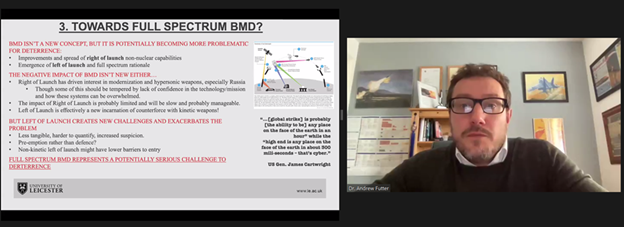
Speaking about future prospects of emerging technologies, Dr. Futter outlined four possible scenarios: the first and the most likely one leading to strategic instability and arms race; the second and the most destabilizing one that will produce a strategic advantage for some parties; the third and the most appealing one that envisions restraint and thus paves way to nuclear disarmament, and the final and the most transformative one leading to stability.
In conclusion, Dr. Futter drew the audience’s attention to the fact that while emerging technologies are framed as a technological issue they primarily are political, thus new technologies need to be handled through the involvement of various stakeholders as well as expert and public debates which can help enhance their positive consequences and mitigate the negative effects. .
The full recording of the inaugural webinar event can be found below:

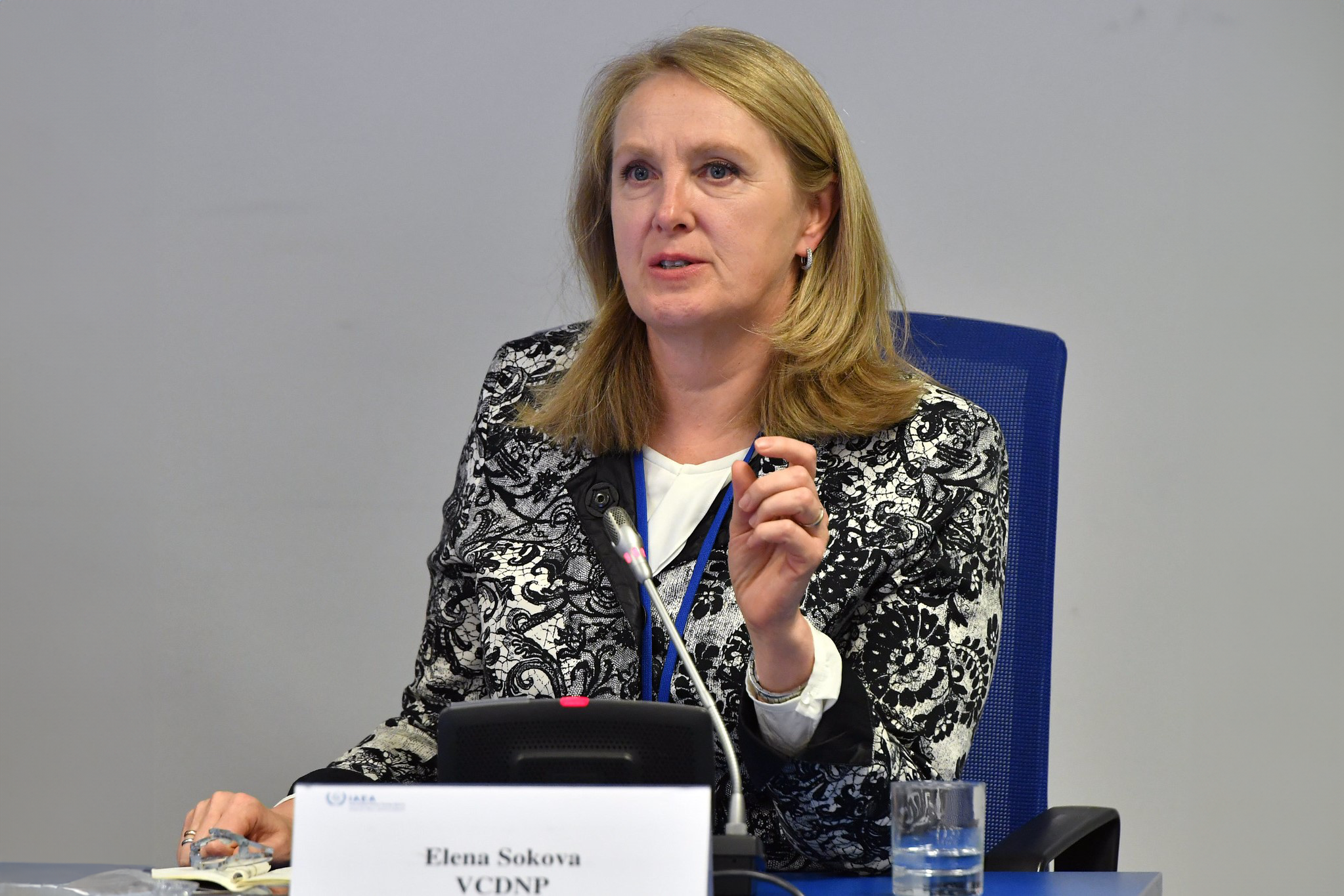
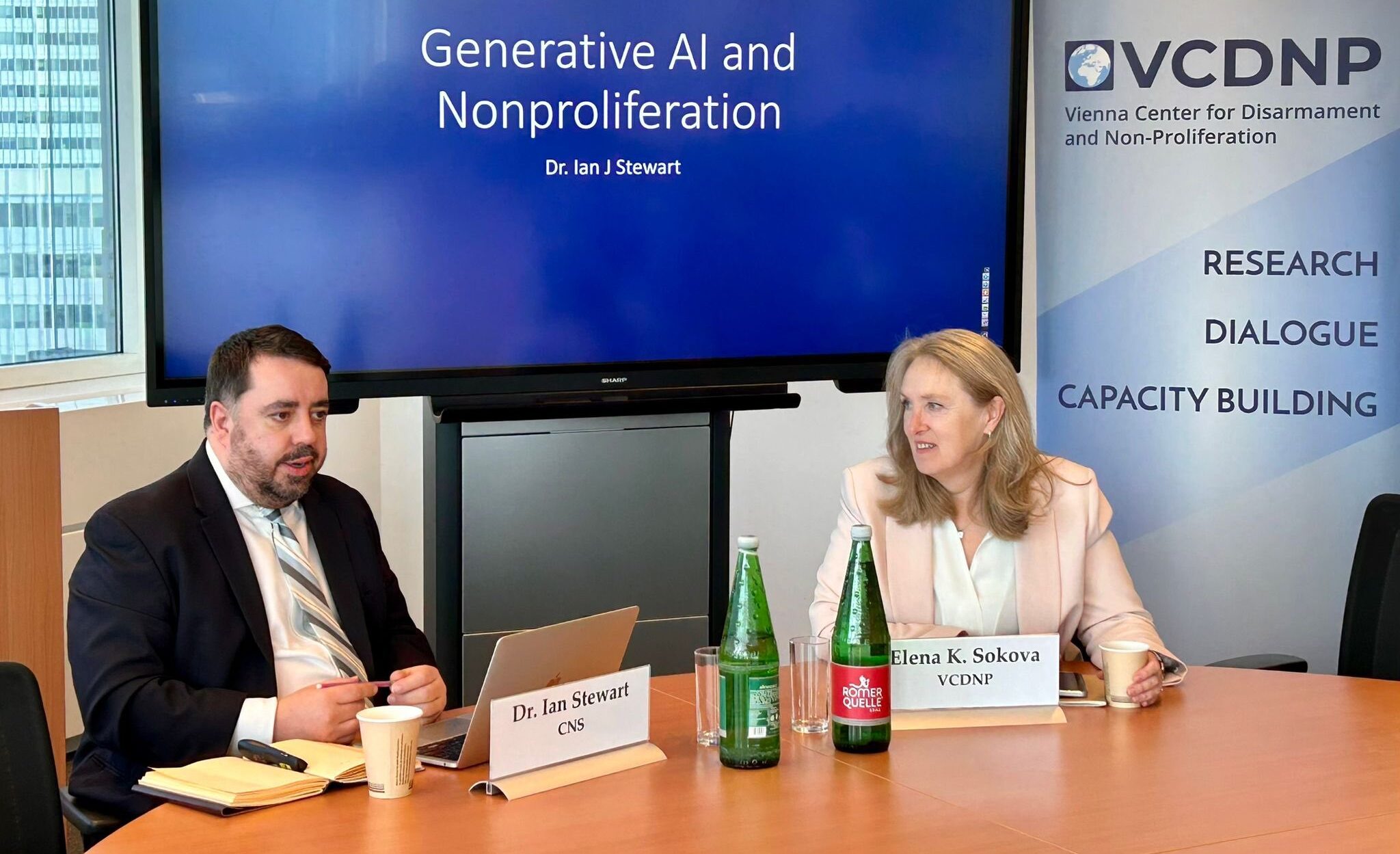
By continuing to use the site, you agree to the use of cookies. more information
The cookie settings on this website are set to "allow cookies" to give you the best browsing experience possible. If you continue to use this website without changing your cookie settings or you click "Accept" below then you are consenting to this.